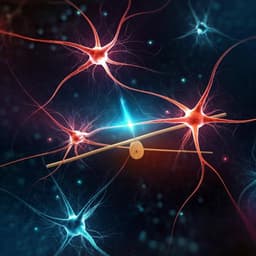
Psychology
Exploration of a novel virtual environment improves memory consolidation in ADHD
V. Baumann, T. Birnbaum, et al.
This research by Valentin Baumann and colleagues explores how behavioral tagging with novelty can significantly enhance memory consolidation for children and adolescents with ADHD. Findings indicate that while familiar environments hinder memory retention in ADHD patients, novel virtual settings can boost their memory consolidation compared to typically developing peers. A remarkable intervention for addressing ADHD-related memory challenges unfolds!
~3 min • Beginner • English
Related Publications
Explore these studies to deepen your understanding of the subject.







